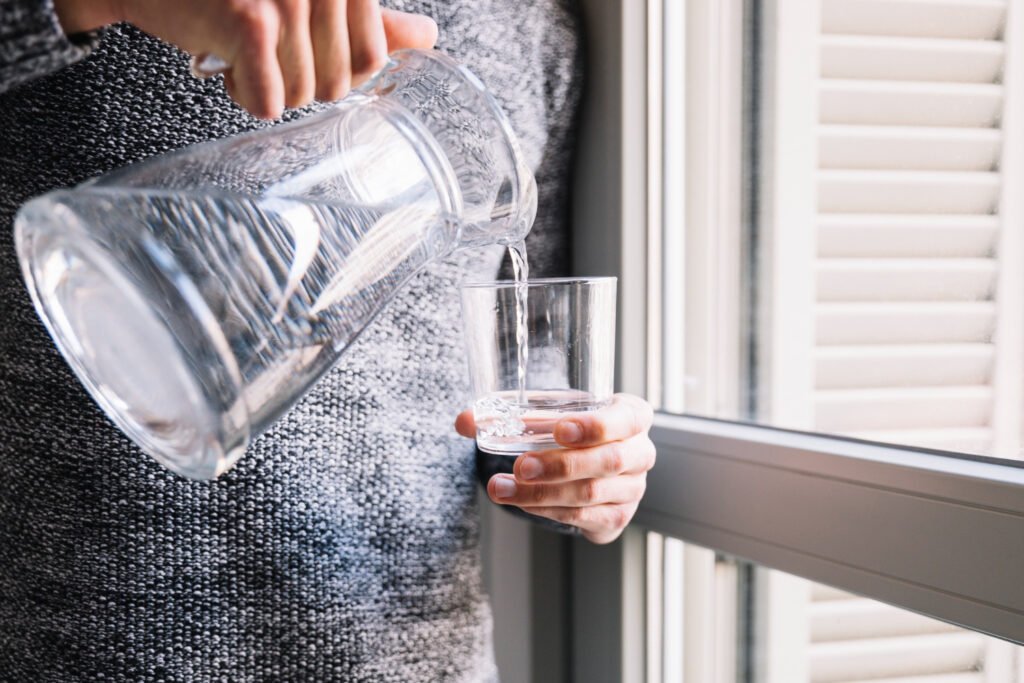
In this article
Overview
When we think about hydration, the message is often clear: drink plenty of water. However, like many good things, it is possible to have too much water. Water intoxication, also known as water toxicity or hyponatremia, occurs when excessive water consumption dilutes essential electrolytes in the body, potentially leading to severe health complications. Despite its rarity, this condition can be life-threatening if not properly managed.
What is Water Intoxication?
Water intoxication happens when someone consumes an excessive amount of water in a short period. This overconsumption overwhelms the kidneys’ ability to excrete the excess fluid, causing an imbalance in electrolytes, particularly sodium. Sodium is crucial for maintaining the balance of fluids inside and outside cells. When sodium levels drop too low, water can enter cells and cause them to swell. This swelling is especially dangerous in brain cells, where it can lead to increased pressure in the skull and potentially fatal complications.
Symptoms of Water Intoxication
Recognizing the symptoms of water intoxication early is key to preventing severe outcomes. These symptoms can resemble those of dehydration or even psychosis and include:
- Disorientation
- Confusion
- Nausea
- Vomiting
In more severe cases, individuals may experience an altered mental state or loss of consciousness. It’s important to note that these symptoms can escalate quickly, making timely intervention crucial.
Causes and Risk Factors
Water intoxication typically results from consuming more water than the kidneys can handle. This often occurs in situations involving excessive sweating and over-replenishment of fluids, such as during intense athletic activities or prolonged exposure to heat. Other scenarios that might lead to water intoxication include:
- Participating in water-drinking competitions
- Experiencing extreme thirst due to medical conditions or medications
- Mental health conditions like psychogenic polydipsia
Certain health conditions and medications can also increase the risk of water intoxication. For instance, kidney or liver disease, heart failure, and uncontrolled diabetes can all impair the body’s ability to manage fluid levels effectively. Medications such as certain antidepressants, vasopressin, and diuretics can also contribute to increased thirst and fluid retention.
Diagnosing Water Intoxication
Diagnosing water intoxication can be challenging due to its nonspecific symptoms. Healthcare providers typically conduct a physical examination and review the patient’s medical history. Blood and urine tests are essential to confirm the diagnosis, measuring sodium levels in the blood and urine. Normal blood sodium levels range from 135 to 145 milliequivalents per liter (mEq/L), while urine tests help determine if the kidneys are excreting excess fluid properly.
Treatment Options
The primary goal in treating water intoxication is to restore the body’s electrolyte balance and prevent complications. Treatment approaches vary based on the severity of symptoms:
- Mild Cases: Reducing water intake to allow the kidneys to rebalance fluid levels naturally. This might involve limiting water consumption to less than a quart per day for several days.
- Monitoring Sodium Intake: Adjusting sodium intake can help if the intoxication is due to underlying conditions like heart, liver, or kidney disease.
- Medication Adjustments: Discontinuing or adjusting medications that contribute to the condition.
- Diuretics: Sometimes used to increase urine production and help excrete excess water.
In severe cases, intravenous (IV) medications may be administered to safely raise sodium levels and avoid rapid correction, which could lead to additional complications.
Preventing Water Intoxication
Preventing water intoxication involves balancing fluid intake with the body’s needs. General recommendations for daily fluid intake are approximately 15.5 cups for men and 11.5 cups for women, including fluids from both food and beverages. Key prevention tips include:
- Avoiding more than 48 ounces of fluid within an hour
- Stopping fluid intake if feeling bloated or nauseous
- Using electrolyte drinks in moderation, especially during intense physical activities
- Being mindful of fluid intake during hot weather or prolonged exercise
- Monitoring urine color as a hydration indicator
Complications and Severe Outcomes
If untreated, water intoxication can lead to severe complications such as hyponatremia, characterized by dangerously low sodium levels in the blood. Potential complications include:
- Brain swelling (cerebral edema)
- Seizures
- Coma
- Death
These outcomes highlight the importance of recognizing symptoms early and seeking appropriate medical intervention.
The Takeaway
Water is essential for life, but moderation is key to avoiding the potentially fatal consequences of water intoxication. Understanding the signs, causes, and preventive measures can help maintain a healthy balance. Always listen to your body, monitor your fluid intake, and seek medical advice if you experience symptoms of overhydration. Remember, while staying hydrated is crucial, overdoing it can be just as dangerous as not drinking enough.
By maintaining awareness and balance, you can ensure that your hydration habits support your overall health and well-being
A Quick Review
Water intoxication, or overhydration, is a rare but serious condition where excessive water intake dilutes essential electrolytes, causing potentially life-threatening complications. Recognizing the symptoms, understanding risk factors, and balancing fluid intake are key to prevention. Stay informed about proper hydration to maintain optimal health and avoid the dangers of water intoxication
Frequently asked questionsay
What is water intoxication?
Water intoxication, or overhydration, occurs when excessive water consumption dilutes the body’s electrolytes, leading to severe health issues.
What are the symptoms of water intoxication?
Symptoms include disorientation, confusion, nausea, vomiting, and in severe cases, altered mental state or loss of consciousness.
What causes water intoxication?
It typically results from drinking too much water too quickly, often during intense physical activities or under certain medical conditions.
How is water intoxication treated?
Treatment focuses on restoring electrolyte balance, often by reducing water intake and, in severe cases, using IV medications.
How can I prevent water intoxication?
Prevent overhydration by drinking fluids in moderation, especially during physical activities, and monitoring your body’s hydration signals.
Can water intoxication be fatal?
Yes, if untreated, it can lead to severe complications like brain swelling, seizures, coma, and even death.